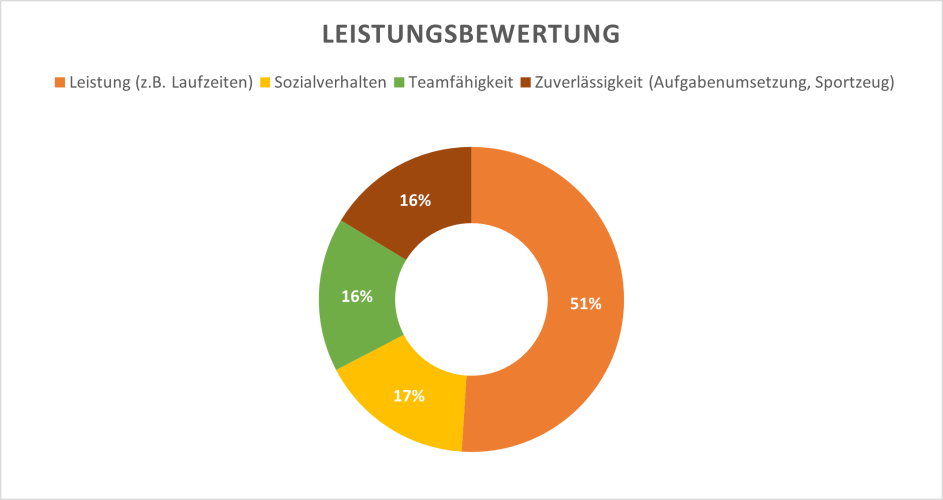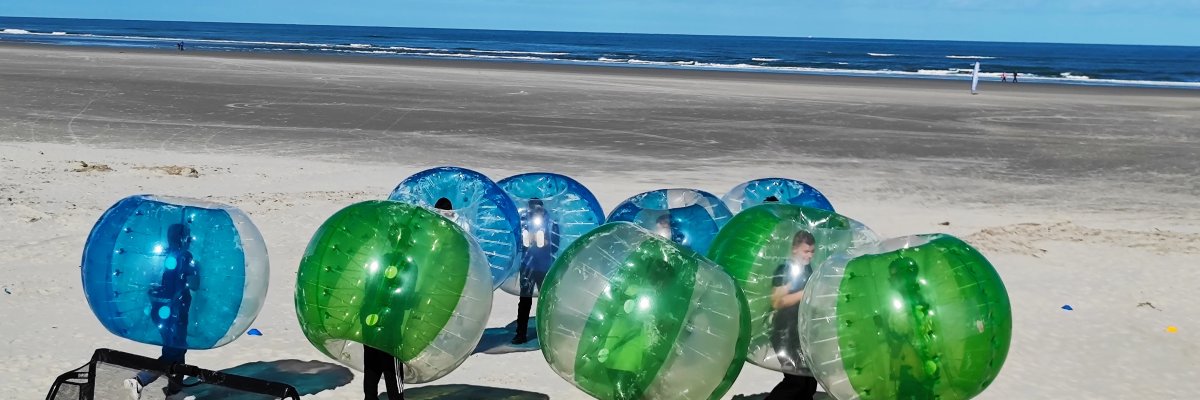Principles for performance assessment in the subject of sport
- Willingness to make an effort
- the different physical, psychological and social conditions of boys and girls
- the individual learning progress
- active participation in lessons (physical education/swimming lessons)
- Recognize and overcome own weaknesses, show learning growth
Social behavior must also be assessed:
- Ability to empathize
- Helpfulness
- Willingness to communicate
- Ability to deal with conflict
- Rule acceptance
- Consideration
- Perception and assessment of others' and own movements/behavior
The ability to work in a team also plays a role:
- Acceptance of group membership
- Willingness to cooperate
- Practical implementation of the concept of fair play
- Work productively in a group
- Changing roles in sports forms
Reliability is also taken into account:
- Delivery/performance of theoretical substitute services
- Setting up and dismantling the movement landscapes
- Participation in classroom discussions
- Sports kit (forgetting the sports kit several times will result in a grade deduction)
and physical and athletic performance
- Endurance
- Coordination
- Condition
- Creativity
- Measurable performance
- Playing ability and skill
- Sports motor learning and performance progress
Then there are the performances in competitions:
- Winter sports tournament

